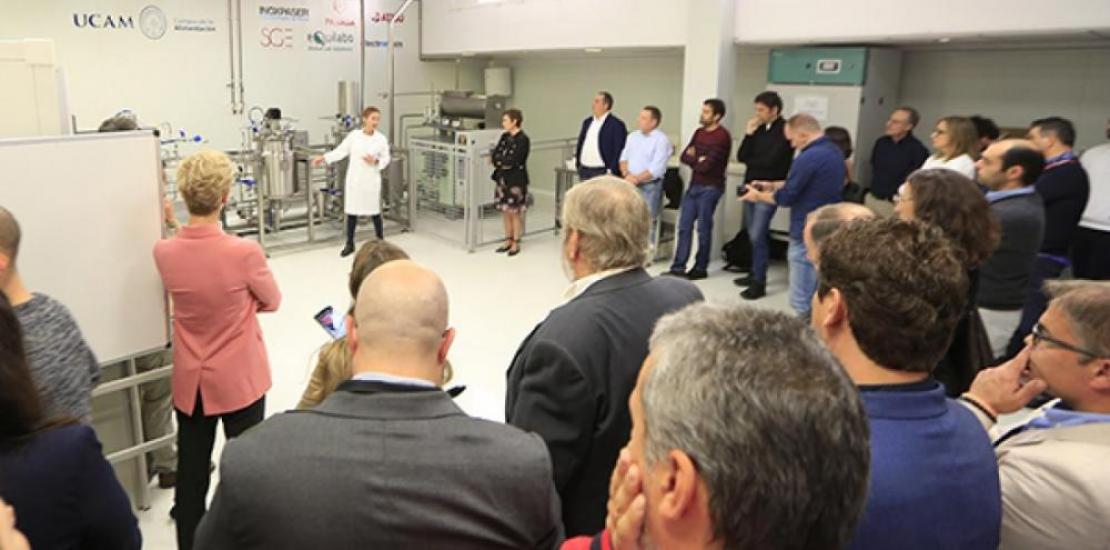UCAM launches its Food Processing Pilot Plant
The plant is devoted to the training of its students and to provide a service to companies in the agri-food sector
Before a food product is put on the market, it has gone through a process of research and
quality controls that enable its consumption. This week, the Universidad Católica de Murcia
has launched its Food Processing Pilot Plant, which is projected as a reference centre for
training in this field, and which is at the service of the agri-food sector to undertake any
project it may require. The companies PANASA, Equilabo, ATTSU, SGE, Inoxpaser and
Electromain have been involved in its implementation.
The Food Processing Pilot Plant is part of the Faculty of Pharmacy and Nutrition, whose
dean is José María Cayuela. Furthermore, María Dolores Gil is the technical manager of the
facility, supervised by Beatriz Romanos, founder of TechFood Magazine -a reference
publication for companies, startups and investors in the sector.
100% industrial design for the best training
This new facility, where students of the degrees in Human Nutrition and Dietetics, Food
Science and Technology, Biotechnology and Gastronomy, and postgraduate courses in the
area will be trained, complements other facilities such as the GastroLab, the laboratories
and UCAM HiTech. The versatility of the line, which is 100% industrial design and has
computerised all its processes, enables them to acquire skills in the design and control of
basic operations of formulation, mixing and heat treatment of liquid products and
nutritional creams. The implementation of these processes on a semi-industrial scale
allows the integration of practical knowledge related to different areas, from food hygiene
and safety to the quality control of processed products or microbiology, for which it also
has a laboratory area with state-of-the-art technologies for online control as well as
refrigeration and freezing chambers.
University-business
The multidisciplinary nature of this facility, which will also provide a space for research and
knowledge transfer to improve food quality and safety and optimise food production
processes, is worth to be highlighted. To this end, it will be able to undertake projects in
any agri-food sector, as it will adapt to any formulation and design of the entire food
process, to solving specific issues such as heat treatment, food safety, technological
problems, eliminating additives, packaging, or the use of agro-industrial by-products,
among others.
These facilities are a new UCAM commitment to research in the field of health, ‘following
the spirit of service of the president of UCAM, José Luis Mendoza’, said José María Cayuela,
dean of the Faculty of Pharmacy and Nutrition, who also indicated that ‘we want to be a
reference centre both for food processing at pilot plant level and for specialised training in
everything related to the agri-food industry, a subject with a strong presence in the Region
of Murcia’.




